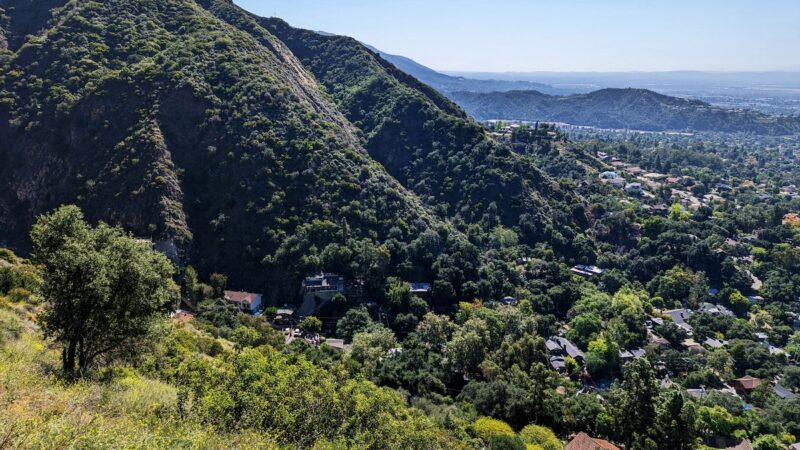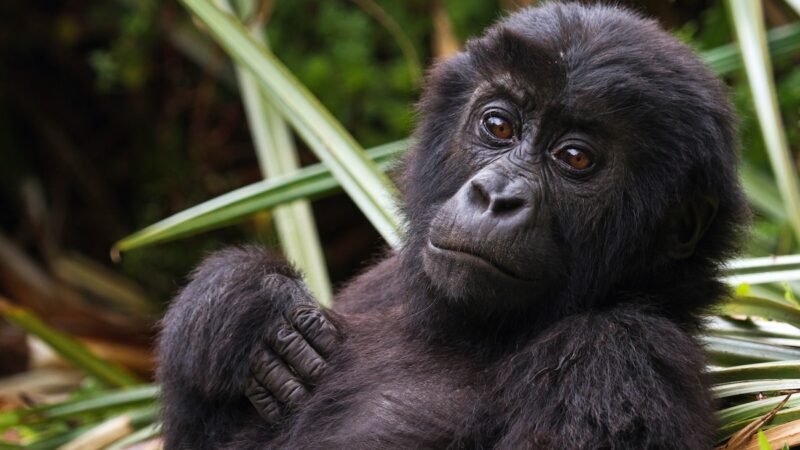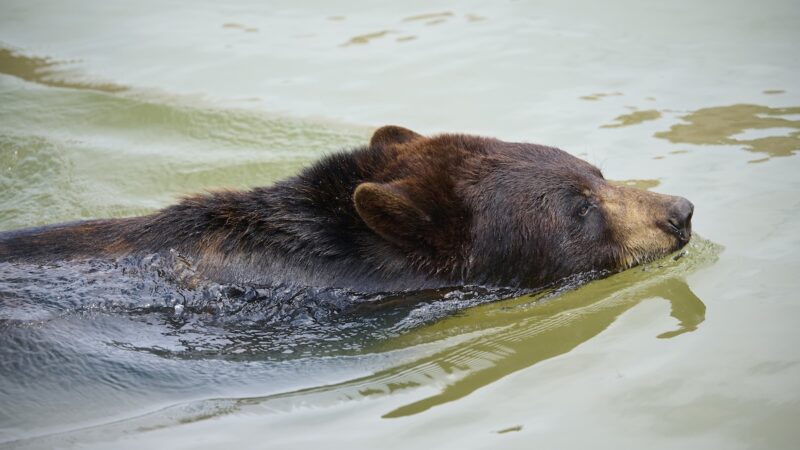Hot Take (or Cold Take?): Yellowstone National Park Is Better in the Winter
When you picture a national park, the spewing geysers and steaming hot springs of Yellowstone National Park are likely some of the first images to come to mind. Yellowstone’s peculiar landscape makes it a popular destination not only for outdoor enthusiasts but also for the average globetrotter.
Videos by Outdoors
For this reason and others, Yellowstone is one of the most-visited national parks, welcoming millions of guests every year. I once visited the park twice in one year, during two opposite seasons: winter and summer. Here’s why I prefer Yellowstone in the winter.
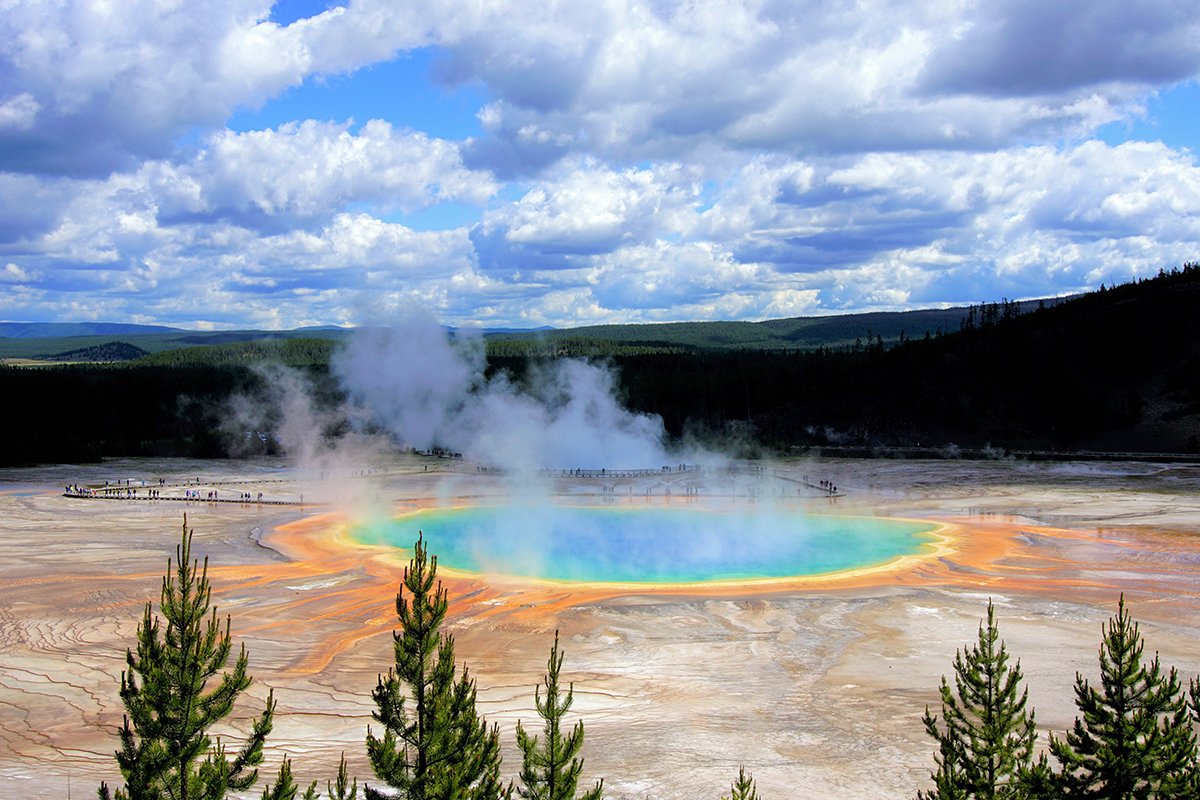
Yellowstone in Summer
My first trip to Yosemite was in 2021. Amid a summer road trip, my group and I decided to trek our way over from Shoshone Falls, Idaho up to the great state of Wyoming and into Yellowstone National Park. Our first adventure at the park? Waiting in the car line at the north entrance for an hour. Since it was peak season, this came as no surprise, but considering we were on road-trip time, the waiting cut into our precisely planned-out schedule.
Once we got in the park, we went in search of the Grand Prismatic Spring and embarked on the Fairy Falls Trail. We found a parking spot a half-mile from the trailhead, and from start to finish, encountered a surfeit of people. I scrambled through thick crowds and caught sight of people taking shortcuts by leaving the designated paths.
The 1.6-mile hike was easy, but navigating the crowd was not. The congestion was too much to make the experience enjoyable, despite the incredible views. Sadly, this trend would continue.
Our next stop was Yellowstone’s Little Grand Canyon. We faced a barricade of people who prioritized getting selfies over enjoying the view. It felt more like waiting in line for a ride at Disney than approaching a view of a cascading waterfall.
We concluded our trip by checking out Old Faithful. The world’s most famous geyser put on a show, and it had quite an audience. The crowd felt as large as a Coachella concert.
The experience left me disappointed—far from how I typically feel after a jaunt in nature. At the time, I didn’t know that six months later I would get the opportunity to revisit the park and have an incredibly different experience.
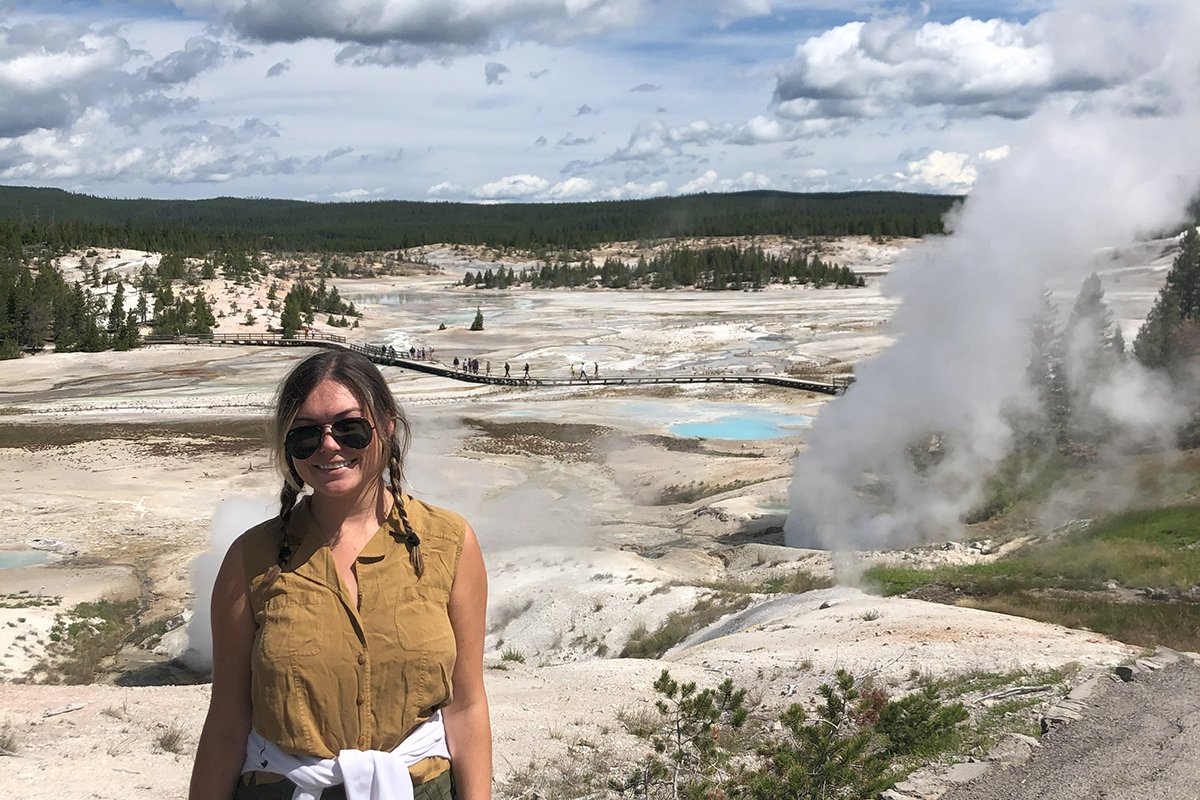
Yellowstone in Winter
I returned to Yellowstone National Park that winter and the car line was non-existent. We cruised right in and instantly got a rare glimpse into the winter ecosystem at Yellowstone by spotting some bighorn sheep.
These sheep venture to lower elevations during the winter, which gives visitors a higher chance of seeing them. Throughout the year, they migrate up and down the northern area of the park. During the winter, the mammals venture down to our walking grounds.
When we encountered the creatures, they were perched on a cliff off the road. The sheep were unintimidated by the small number of cars stopping to take pictures. In a placid demeanor, the sheep continued to graze, almost seeming to pose for our cameras.
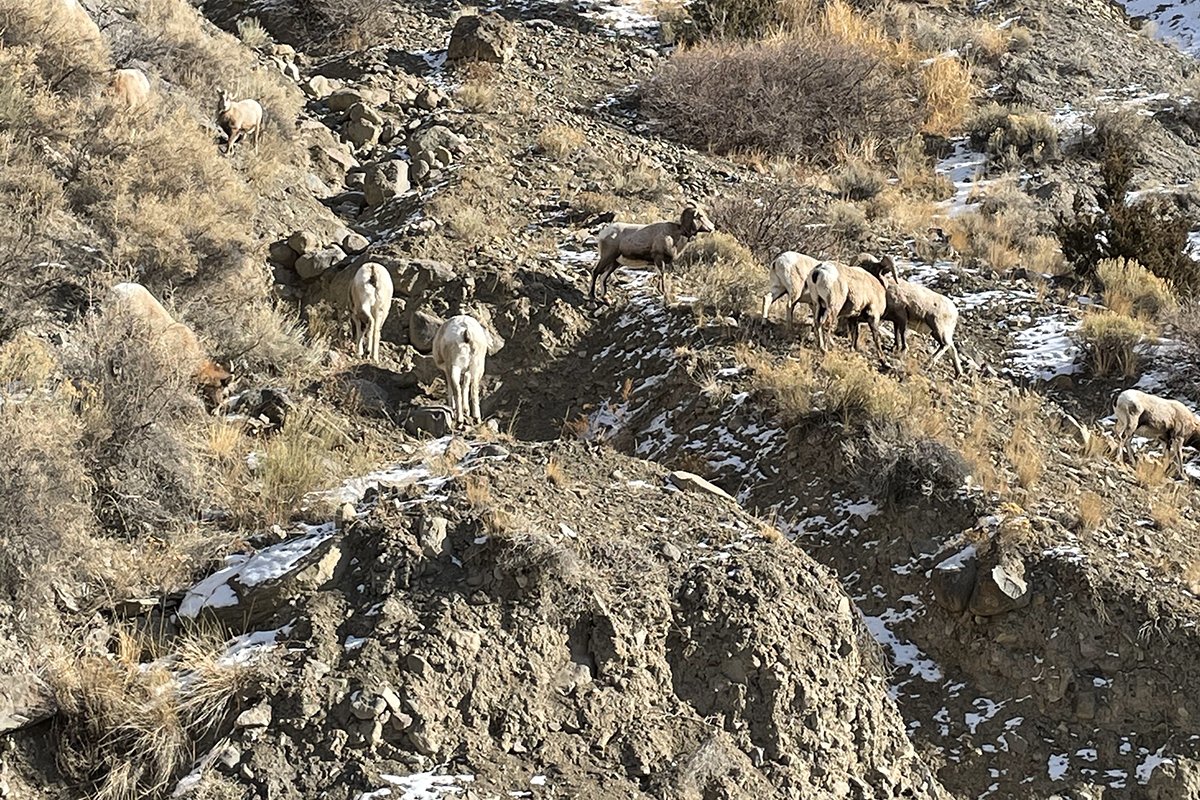
Our first official stop during the winter trip was a steamy one: Mammoth Hot Springs. I wasn’t prepared for the ethereal experience. Thanks to thermophiles (which give the springs their wonderful array of colors), the rock’s gradients stood out against the alabaster snow and limestone. Frost and snow hugged the bare bones of the trees horizontally, appearing in a unique formation that could only exist under those specific conditions. This summertime hotspot had few visitors, which allowed us to take our time and enjoy the scene.
Next, we went cross-country skiing. We rented skis outside the park and caravanned our gear in from Bozeman. We started the descent upwards on the Canyon Rim Ski Trail (a 4.5-mile route), as suggested by one of the rangers. This will go down as my favorite introduction to a new activity.
During the early afternoon, there was hardly anyone on the route. The few crowds made room for other companions on the path, including Yellowstone’s legendary bison. We kept our distance, and they didn’t stir from their mid-day snack. This experience would be near impossible during the summertime with the plethora of people and loud noises disturbing their peace.
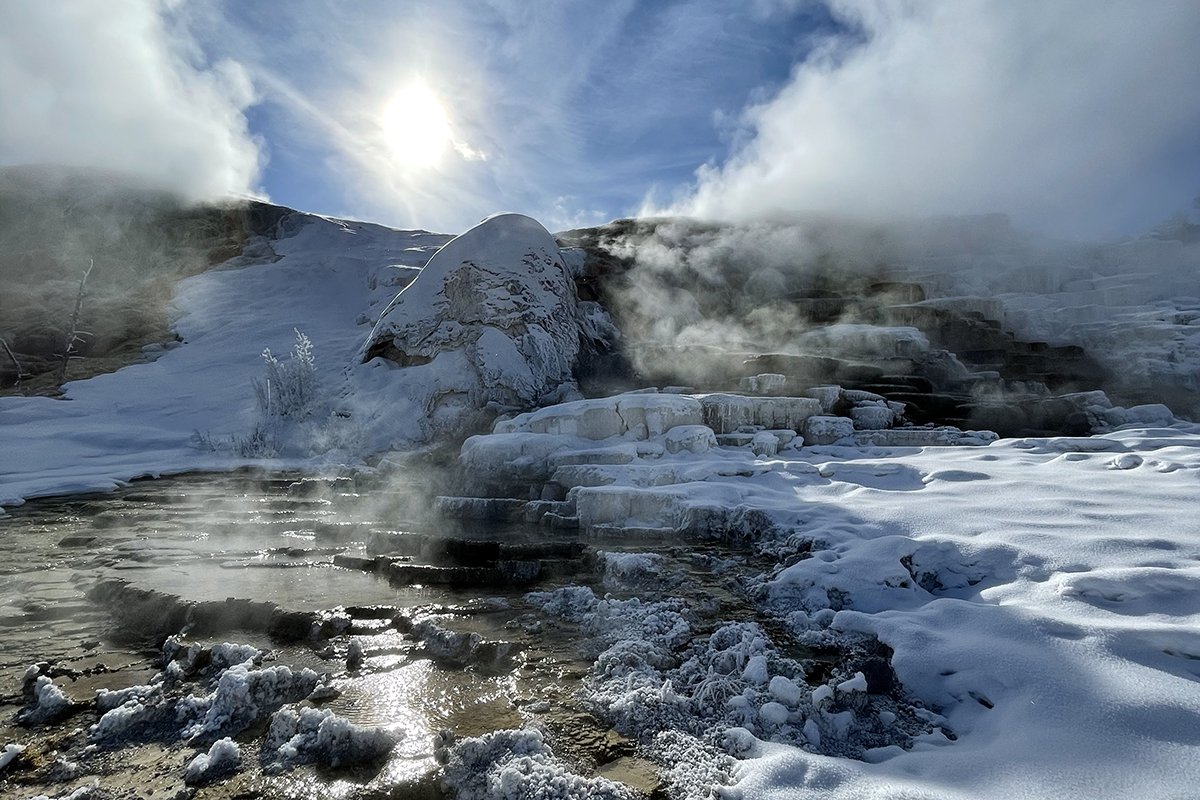
We once again visited Yellowstone’s Little Grand Canyon and, not surprisingly, the experience was better the second time around. This time, I was able to take in the serene surroundings and felt some deep moments of connection to the roaring river. Embraced by a recent snowfall, the river looked as if it were floating through clouds.
During my summer trip to Yellowstone, I saw the legendary sights for the first time, but these moments don’t stack up against my intimate experience in Yellowstone during the winter. The cold weather (about 29°F) was, admittedly, a factor. However, we embraced it, and we were rewarded for it.
Source: https://outdoors.com/yellowstone-is-better-in-winter/



